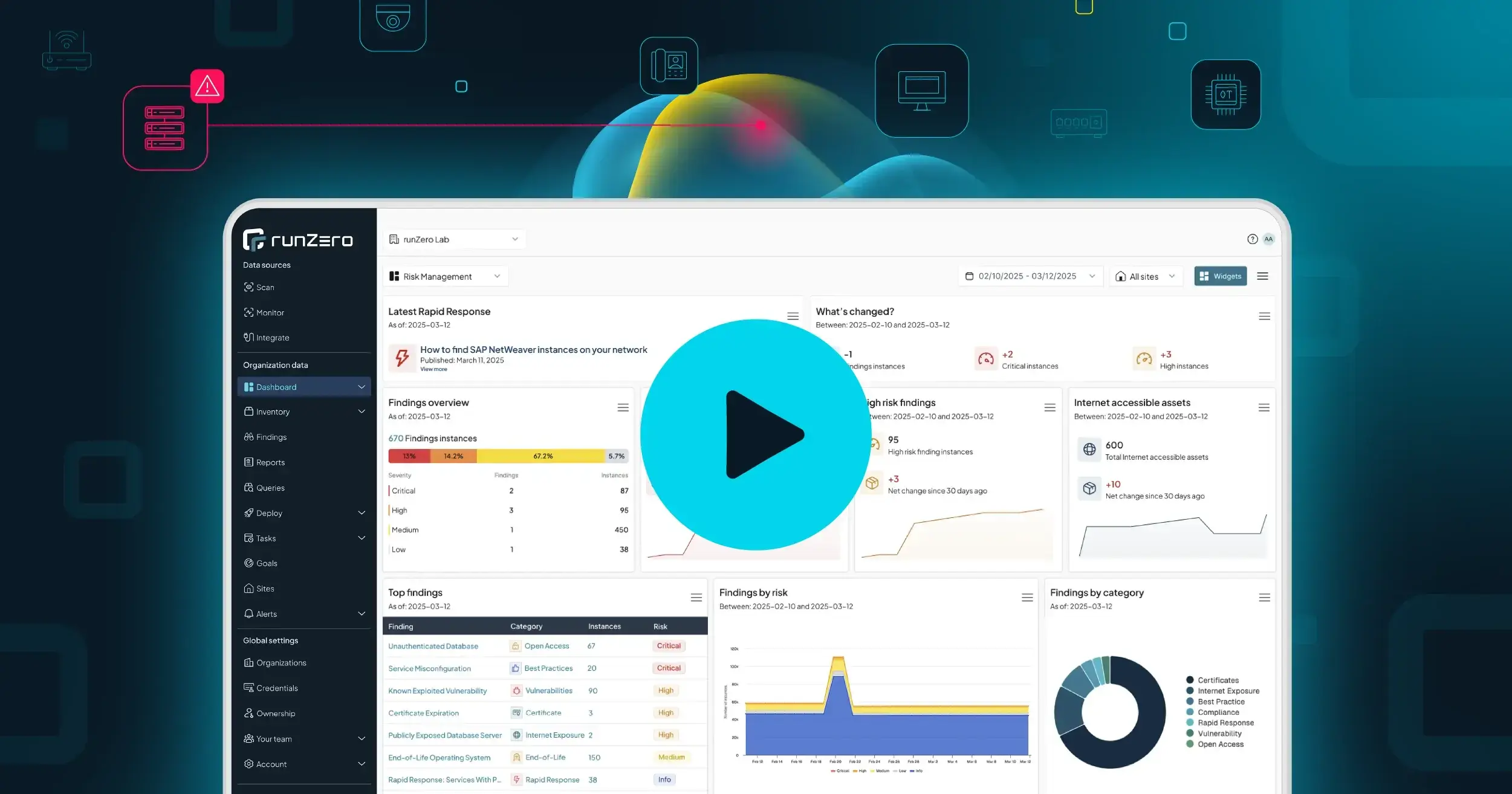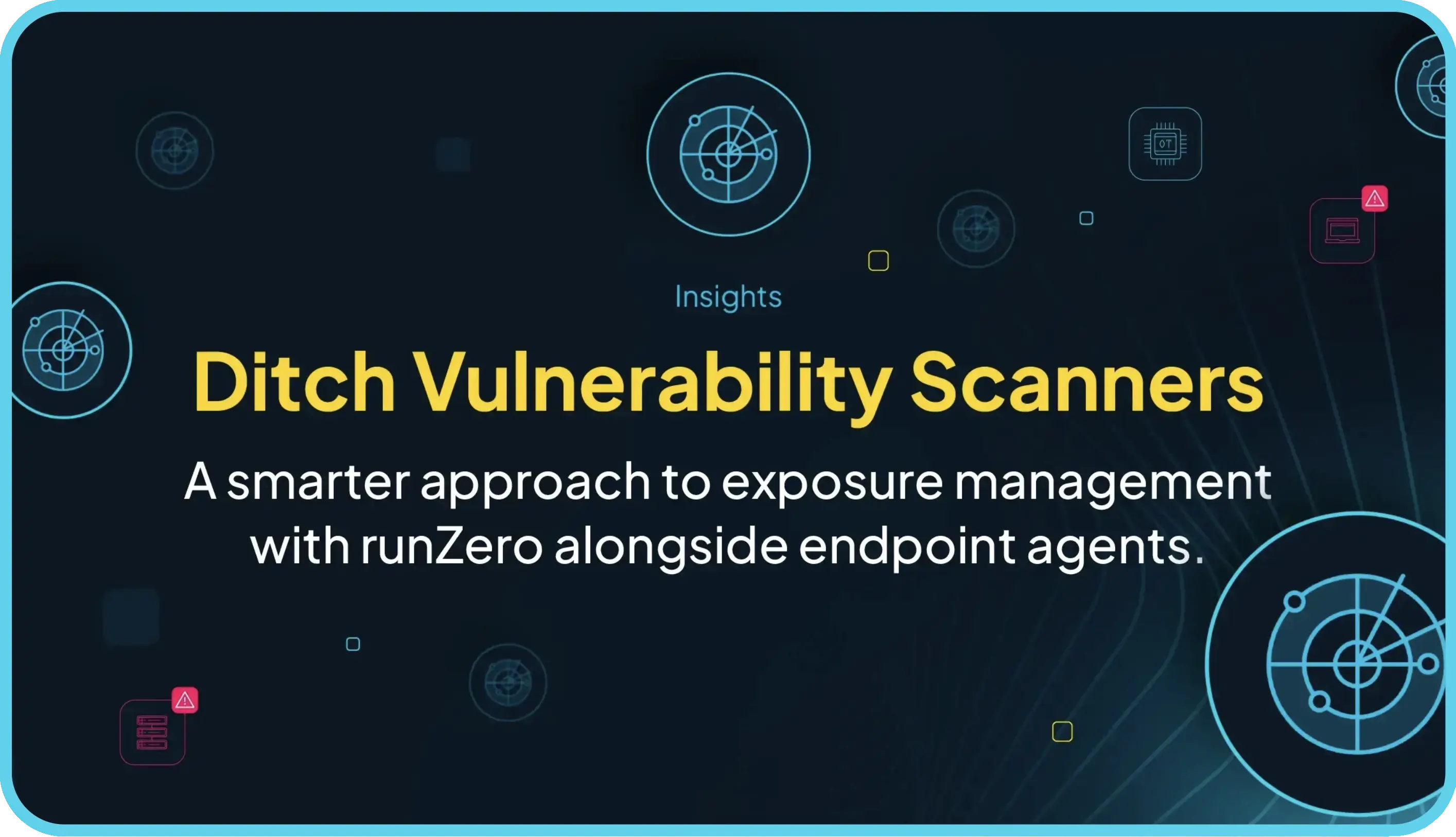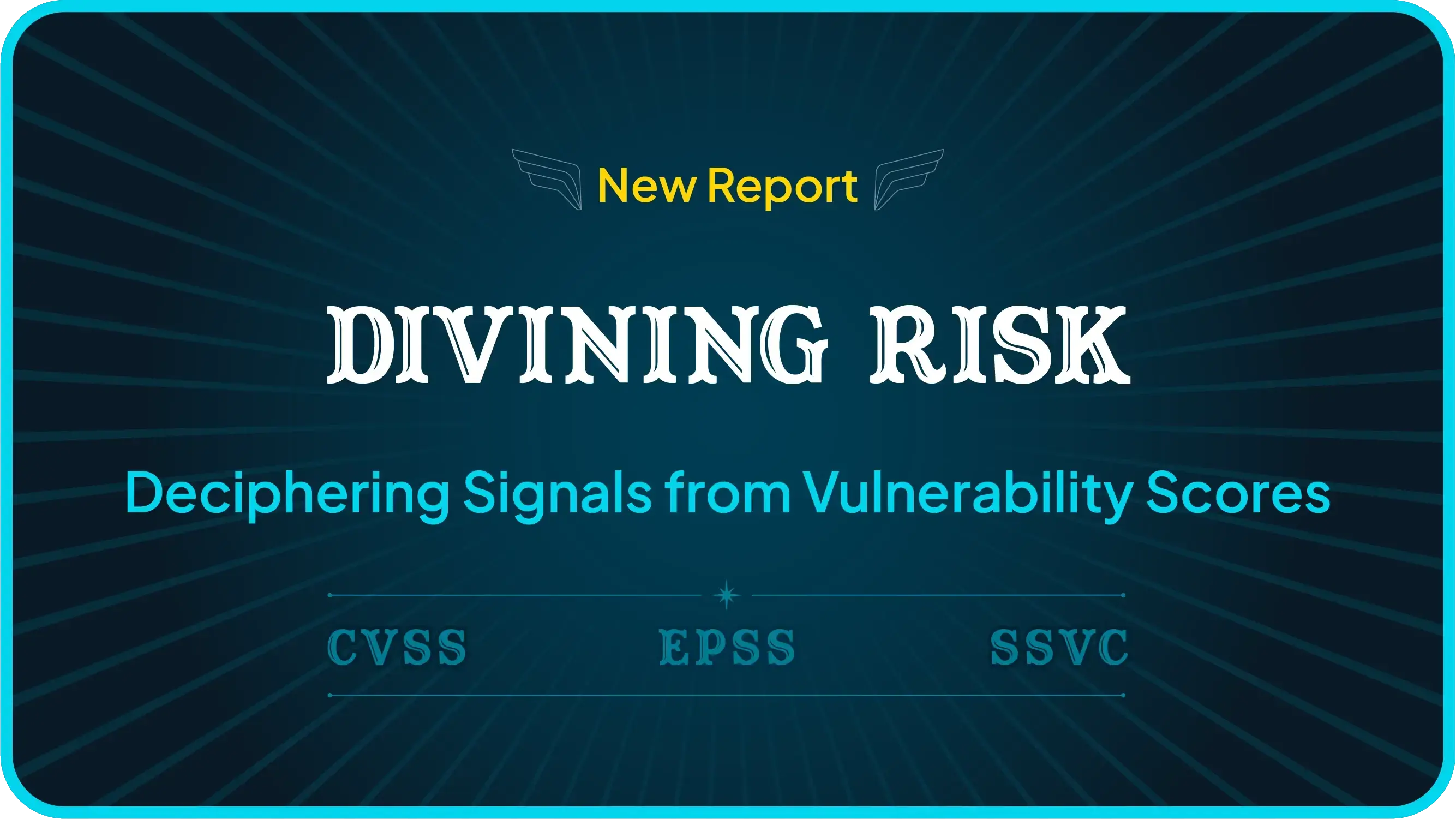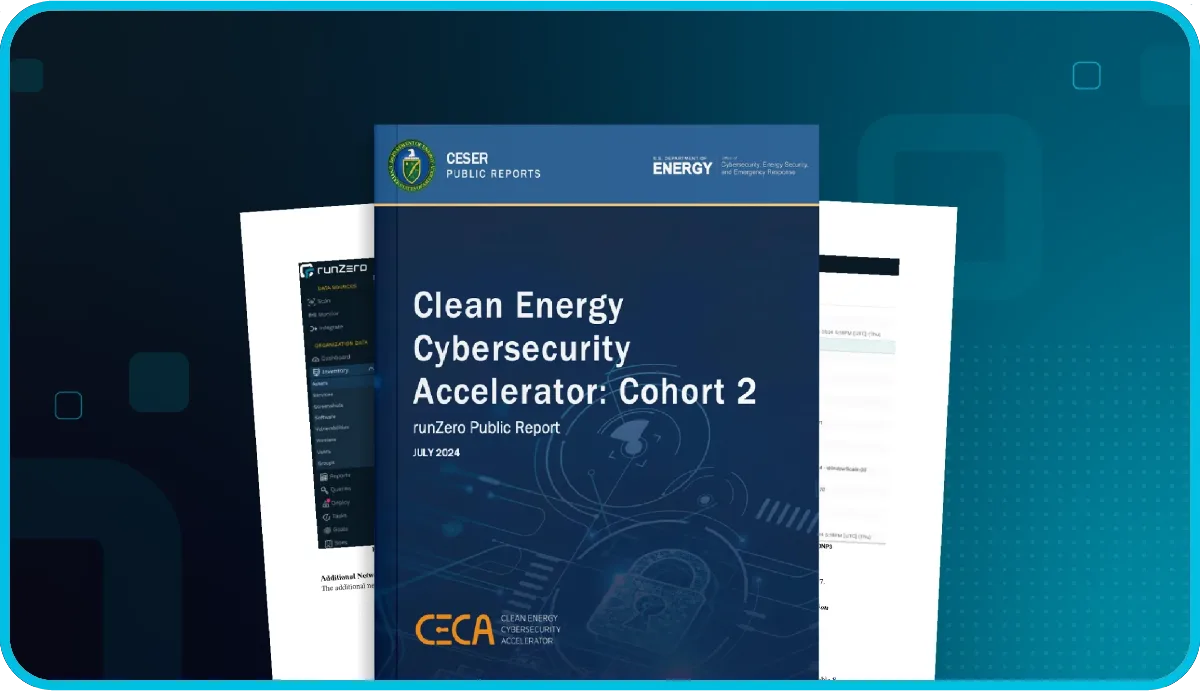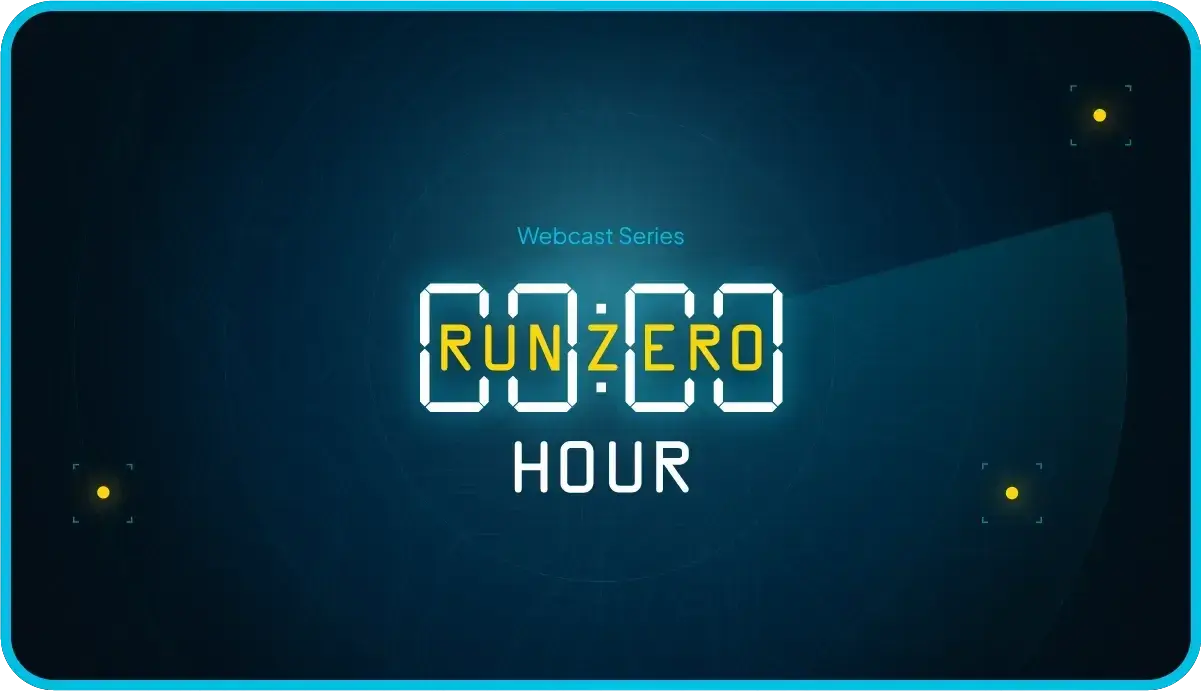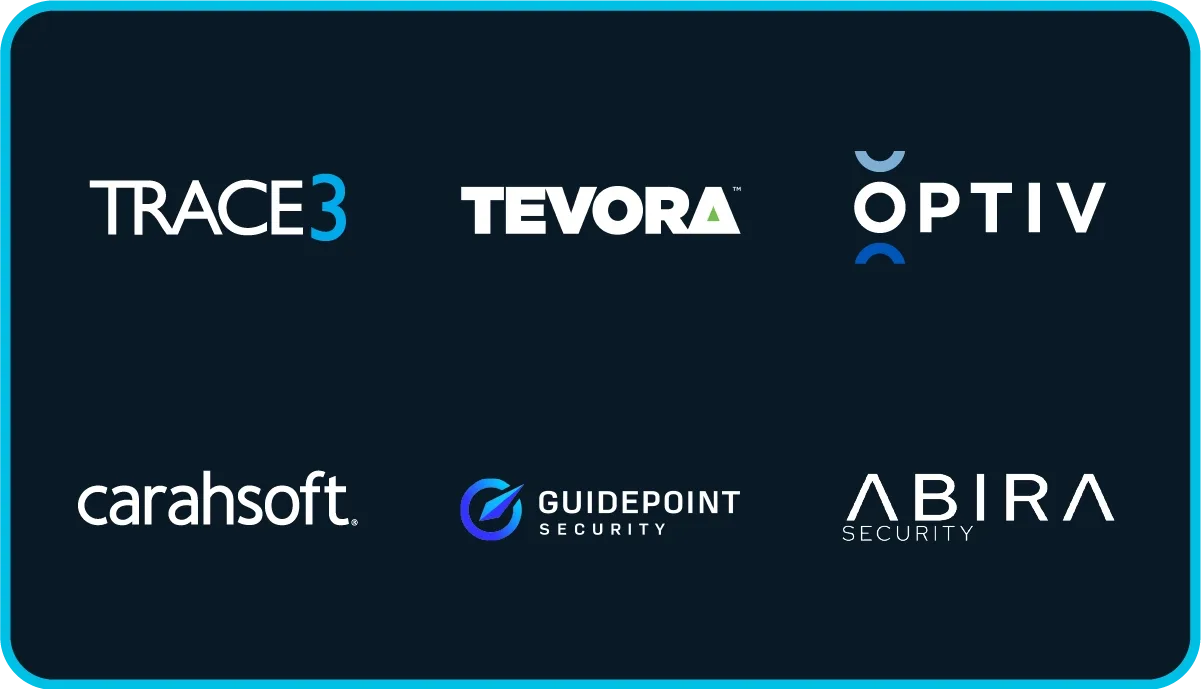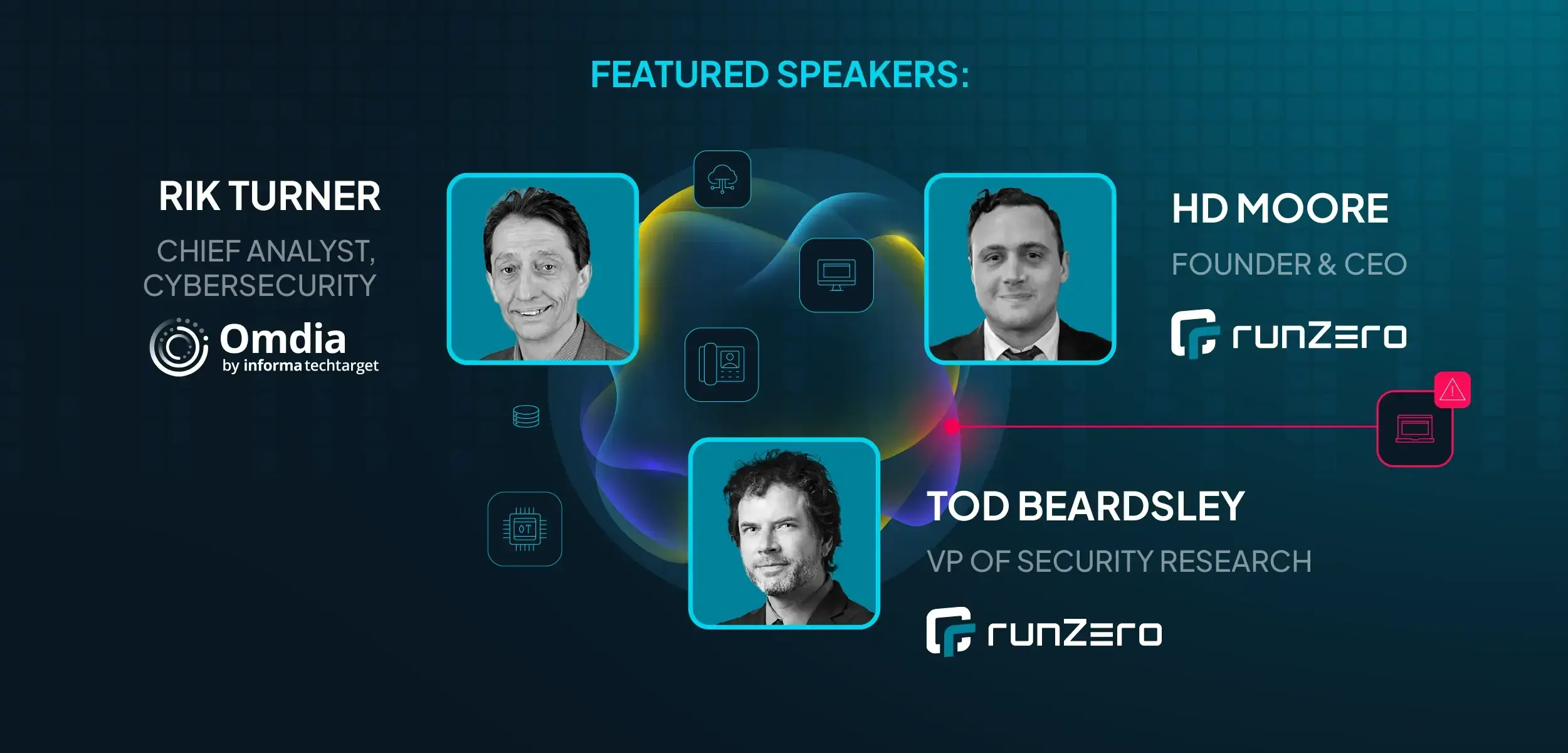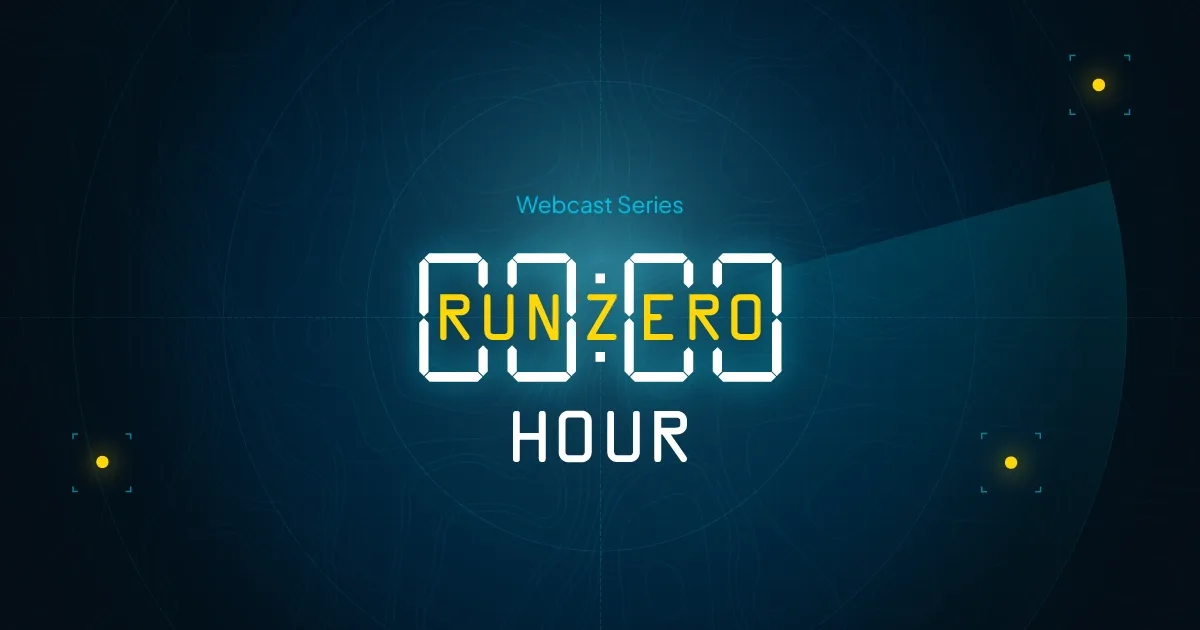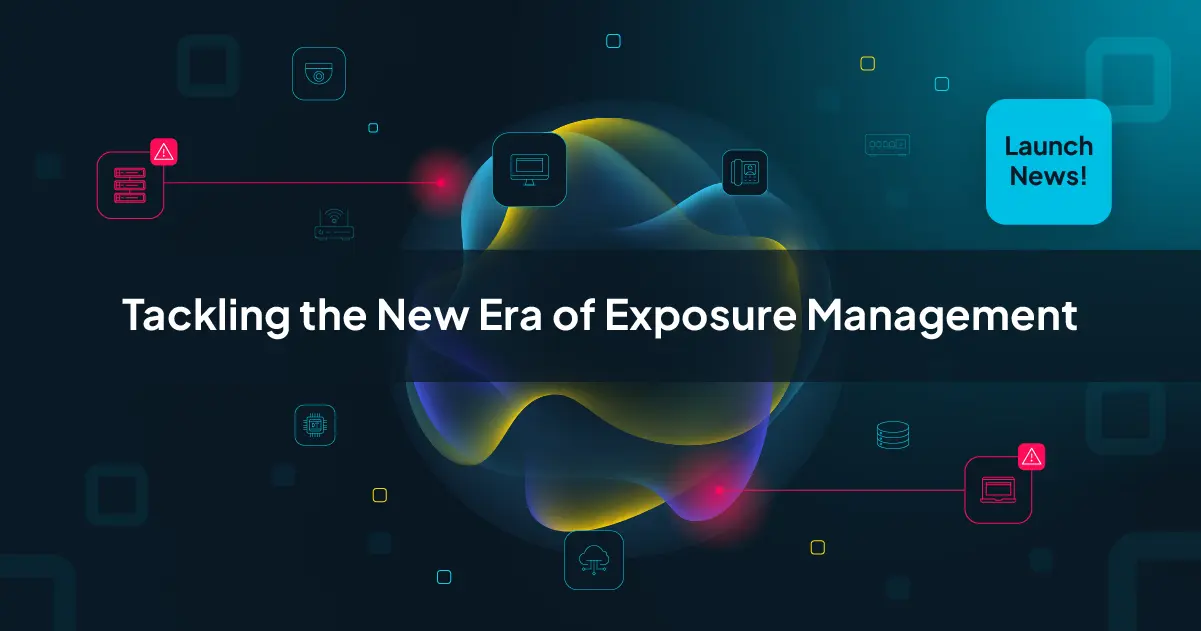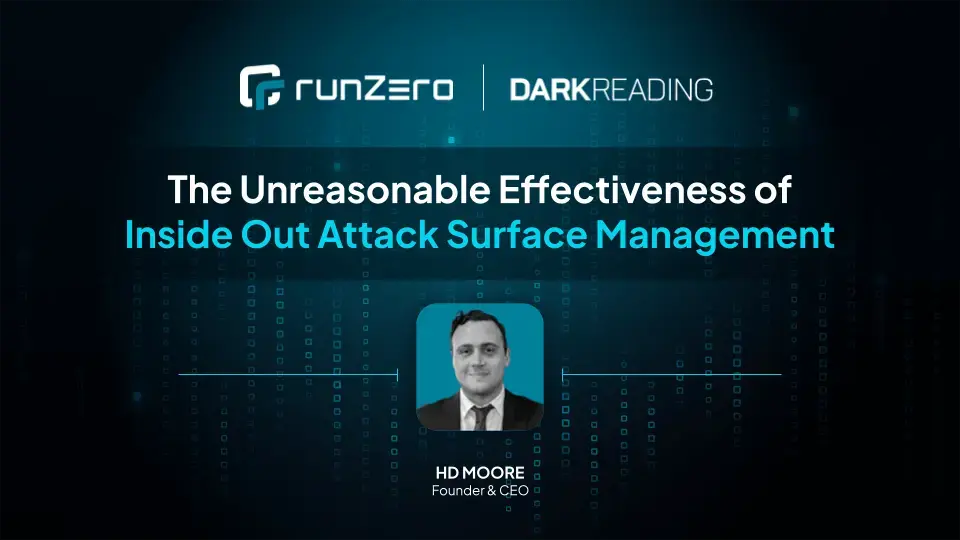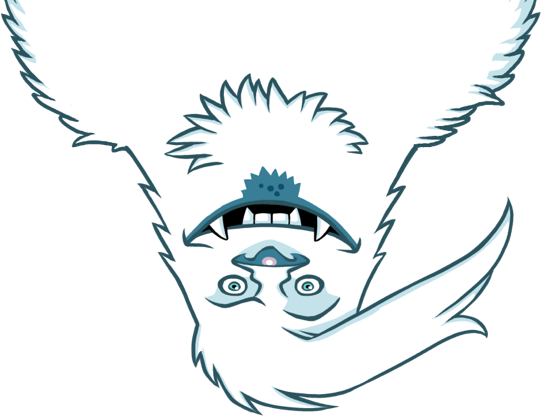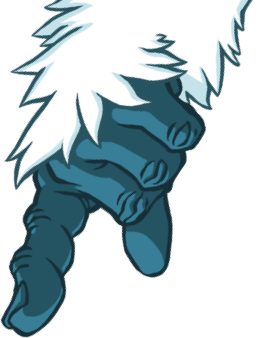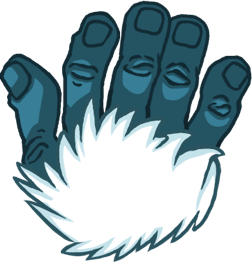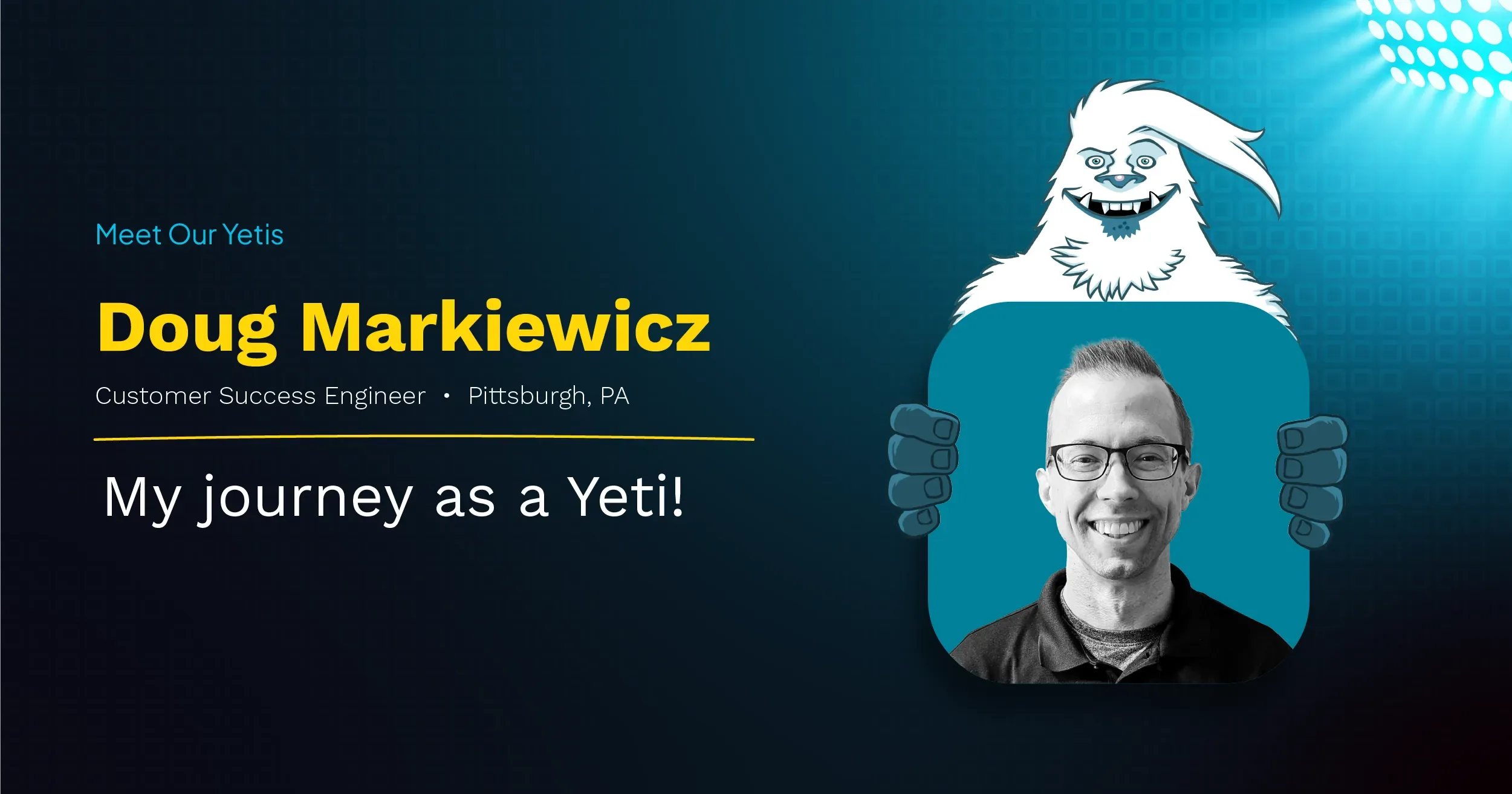
Doug Markiewicz is a strategic Customer Success Engineer with a passion for solving complex cybersecurity problems. He helps our customers unlock the full potential of runZero and brings a unique perspective to this role, having stood in the shoes of the customers he now assists. He worked as a cybersecurity practitioner for 20+ years in industries like higher education and oil & gas before “coming to the dark side” and working for a customer success team under a sales organization.
Outside of work, you can find Doug chasing after his pup or helping his kids get to school and sports. He also loves the outdoors and enjoys hiking with his wife to explore nature whenever possible. Read on to learn more about Doug and why he connects with the runZero mission!
Q&A #
► What parts of our mission do you connect with?
I think runZero is trying to solve a problem I faced regularly while working as a practitioner in the cybersecurity industry. If you look at any security framework, asset inventory is foundational to all those frameworks, and I was never good at it. Well, I mean, you try a bunch of technologies and it gets you part way but you never end up having a good asset inventory. For example, when I was in oil and gas reporting to the CIO, he would read the security news all the time and say to me “Hey, are we vulnerable to this?” or “Are we protected from that?” and I have all these tools that the company’s paying for but, I wasn’t able to answer their questions a lot of the time. I’d have to say “Let me go look into this” and then wait for my vulnerability management platform to come out with a signature for it, so I could run a whole new scan to see if I was vulnerable to it. Having runZero would have solved a lot of problems for me by being able to build a comprehensive inventory and also by being able to answer questions in real-time about my inventory in an easy way. So yeah, I think that's what connects with me; I wish I had runZero when I was working in the industry.
► What makes runZero different from other organizations that you've worked at?
It's a few things. Culture is definitely a big part; it’s the best culture in an organization I've worked at – many companies say they care about their employees but there is a difference between saying it and following through with it. I feel like runZero genuinely cares about its employees and if management is telling you to take more time off, that’s a good thing! I can't think of a place where I've worked where there hasn't been tension in at least some of your meetings and it’s just not the case here.
I also think Tyler, the manager of our Customer Success Engineering team, is really good at ensuring our time is spent focused on customers and making them successful but also a certain percentage of our time is focused on pursuing other things like internal projects, professional development, and of course, our health and family. I like having the flexibility to help with some of our internal security work. For example, I'll be working with IT to maintain our runZero instance and working with Legal on doing a data inventory of personal customer information stored in our platform across all our different integrations. I have a lot of interest in security work and having the opportunity to work internally on our security side of things, makes working here a lot nicer and more enjoyable. I pursued that in a previous customer success role and had much less luck there, so I'm happy to be able to do that here.
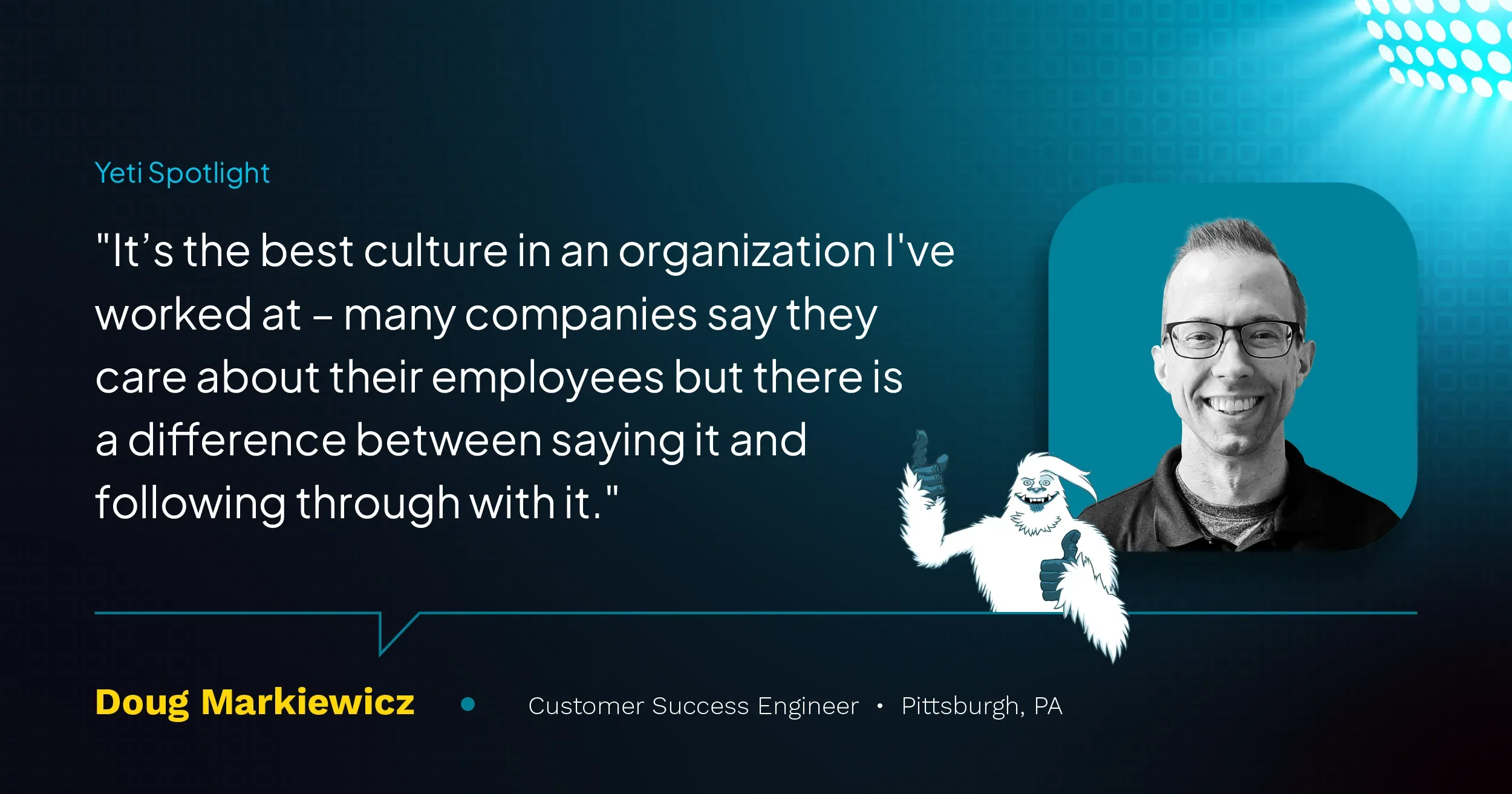
► What have been some of the most important lessons you’ve learned throughout your career?
First and probably one of the biggest lessons I learned fresh out of college was that you're not the smartest person in the room. You need to listen and take everything in because there's always somebody smarter than you, that’s been true throughout my career and definitely holds true for runZero. There are a lot of super smart people here! Through this, and by having experienced a lot of different leadership and management styles over the years, I’ve learned everybody can serve in a leadership role. This is another important career lesson because I found what type of leader I want to be, whether that's as a manager or an individual contributor. I strive to be somebody who leads by example, somebody who's down in the weeds and hands-on. One of the things I respect about HD as a CEO is he's in the weeds every day, developing, meeting with customers, handling tickets, etc. I think there's invaluable feedback you can get from anybody in your organization.
Lastly, I've found that working in this industry is a journey – not a race. You need to work on things that stimulate you mentally and you’re passionate about. So if you’re complaining about your job a lot, maybe that means making a change in your career. It was a little scary jumping from a cybersecurity practitioner into some unknown to a customer success role and I wasn't sure I had made the right decision but I'm glad I did. The lesson here is not to be afraid to make changes when you feel like you might be stagnating in your journey. Even though what I did is typically referred to as “going to the dark side” because now you're going over to sell stuff.
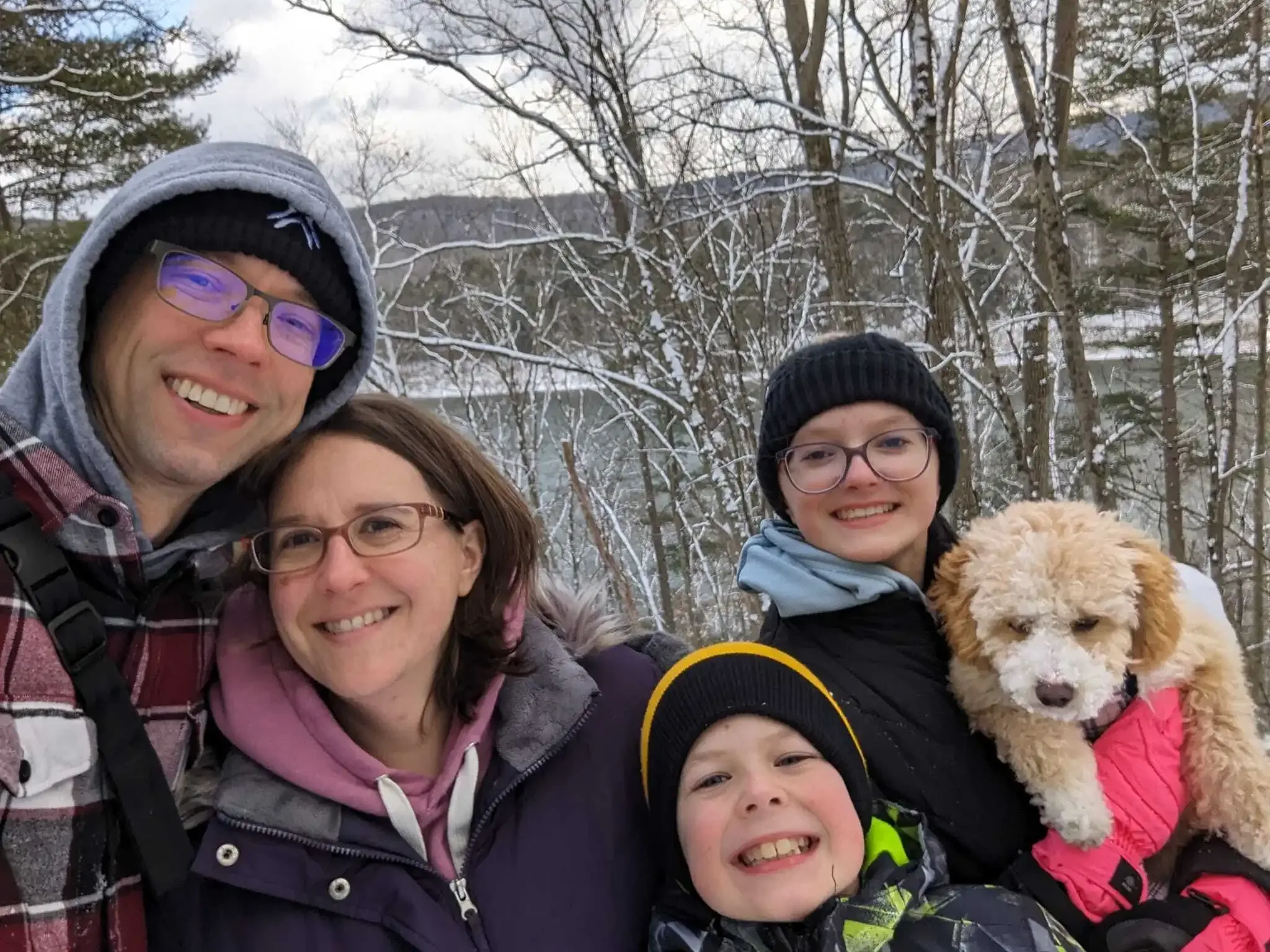
► What’s something on your bucket list?
There are lots of things on the bucket list – I'm still young! 😂 A big one, that's been on my bucket list for a while, is hiking the Appalachian Trail. I don't think it'll happen anytime soon but someday it's gonna happen. For four to six months you carry your life on your back and just walk. For now, I've resorted to reading all the books about hiking the Appalachian Trail. People probably only write books about the trail if they've had a positive experience, so it's likely a biased opinion, but they say how it's life-changing. It’s 2,200 miles, across 14 states. Being out in the woods for six months sounds awesome.
